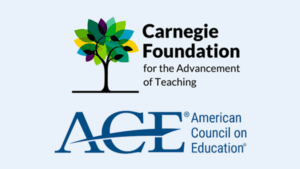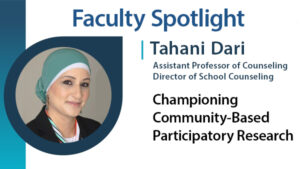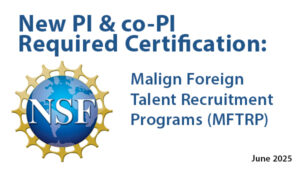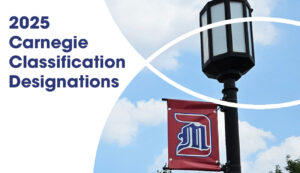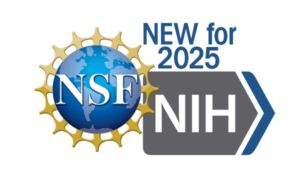Faculty come to University of Detroit Mercy because they enjoy working closely with undergraduate students and the community, choosing research lines that involve a high level of collaboration. Detroit Mercy faculty across disciplines are flexible and embrace multiple roles as mentors, teachers, scholars, and researchers. OSPRA offers many resources to help new and early career faculty succeed at a predominantly undergraduate institution (PUI). While the definition varies, “early career” generally means you are within ten years of receiving your PhD or highest equivalent terminal degree. A middle-career professor is within 20 years of receiving a PhD or the highest equivalent terminal degree.
New faculty are focused on gaining instructional experience and establishing a track record of mentoring undergraduate students in scientific research. This can be challenging in an institution that doesn’t have large and well-resourced lab facilities. Detroit Mercy faculty have overcome these limitations by leveraging the University’s reputation as a “good partner” in building collaborations with researchers and other organizations to enlarge capacity beyond our campuses. OSPRA can connect faculty to the many colleges, non-profit groups, corporations, and funders with whom we have had relationships for many years. We can also prepare you for meetings with potential collaborators and facilitate conversations that lead to formal Memoranda of Understanding (MOU), contracts, sub-awards, and/or grant proposals. We have a stable of grant writers, evaluators, and reviewers to enhance your competitiveness with funders. OSPRA can also conduct planning workshops using a variety of facilitation methods, including Strategic Doing, Institute of Cultural Affairs Technology of Participation, and Design Thinking. We will work with you to craft a strategy that advances your research and career.
In addition to Detroit Mercy’s internal grant funding (Faculty Research Awards), early and mid-career faculty at PUIs have access to funding mechanisms designed especially for them. The key is being willing to co-author and present results to students in the larger scientific community. It is also worthwhile to discuss with your advisors and colleagues how your area of focus is distinguished in a crowded arena. Early career awards have a narrower range of applicants, which can raise success rates and fund researchers who exemplify the future of the field. Sponsors need to be convinced that you have a clear plan for your career and your research trajectory. Most early career applications include a long-term career plan (~10 yrs), external verification of your potential (usually a letter from a chair or dean), your research program, and a roadmap to achieve your aspirations. The following are excellent resources for early career faculty:
1. Berkeley’s list for all early career awards
2. Early Career Faculty Research Funding | Cornell Research Services
3. Coming soon! GrantForward is a database that allows you to search for federal, foundation, and corporate funding.
Contact Ann Serra, Director of OSPRA, to set up a consultation.


